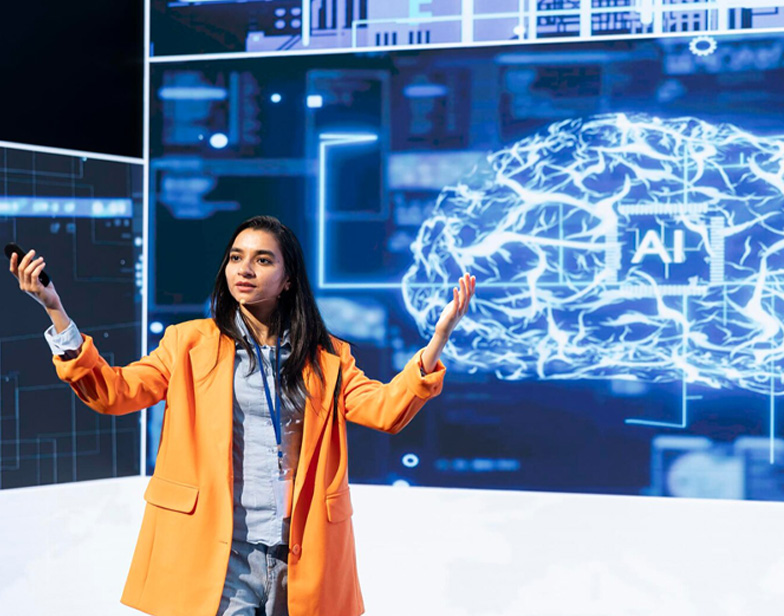Artificial Intelligence (AI) has transformed industries worldwide, reshaping how we live, work, and interact. In 2024, AI is poised to become even more integral, with advancements set to revolutionize healthcare, business, education, and beyond. This blog explores the key trends that will define AI’s future and its impact on our world.
1. Generative AI Growth
Generative AI tools like ChatGPT and DALL-E are leading the charge in transforming creativity and communication. From creating realistic images to producing human-like text, these technologies are making AI more accessible and practical for businesses, educators, and even artists.
2. AI in Healthcare
The healthcare industry continues to benefit from AI, with breakthroughs in diagnostics, personalized treatment, and virtual health assistants. AI algorithms are enhancing medical imaging accuracy and predicting patient outcomes, enabling faster and more efficient healthcare delivery.
3. AI-Powered Automation
Businesses are adopting AI to automate repetitive tasks, boost productivity, and reduce costs. AI-driven robots and software are increasingly being used in manufacturing, customer service, and logistics, driving efficiency across industries.
4. Edge AI
Edge AI combines the power of IoT devices and AI to analyze data in real time, closer to its source. This trend minimizes latency, enhances data security, and is becoming a critical component in smart cities, autonomous vehicles, and industrial IoT systems.
5. Ethical AI Concerns
As AI becomes more pervasive, ethical concerns such as transparency, bias, and accountability are gaining attention. Governments and organizations are working towards creating frameworks to ensure the responsible use of AI technologies.
6. AI in Creative Fields
AI is no longer just a tool for automation; it’s becoming a collaborator in creative processes. From composing music to creating digital art, AI is pushing the boundaries of creativity and augmenting human innovation.
7. AI for Business Insights
Predictive analytics powered by AI helps businesses forecast trends and make informed decisions. Companies are leveraging AI-driven insights to optimize supply chains, enhance marketing strategies, and improve customer experiences.
8. Challenges in Scaling AI
While AI adoption is growing, challenges such as infrastructure costs, lack of skilled talent, and integration complexities persist. Overcoming these hurdles will be crucial for businesses aiming to scale their AI capabilities.
9. AI and Education
Education is evolving with AI-powered tools that personalize learning experiences, assess student performance, and provide instant feedback. These advancements are democratizing access to quality education and making learning more interactive and engaging.
Conclusion
The future of AI in 2025 is both exciting and transformative. As technologies evolve, they promise to redefine industries and enhance human capabilities. However, it is imperative to address ethical concerns and ensure AI benefits are distributed equitably. Businesses and individuals must stay informed and adapt to harness AI’s immense potential effectively.






